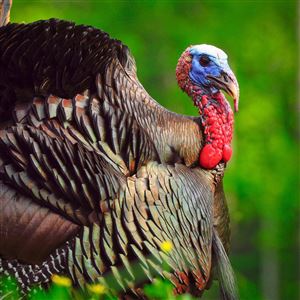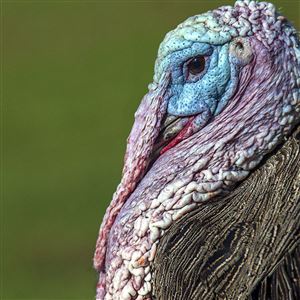Diseases are rampant among Eastern wild turkeys in Pennsylvania. One pathogen that hasn’t impacted the birds is West Nile virus. This autumn, hunters are being invited to participate in scientific research to determine whether the disease is likely to impact turkey populations.
The state Game Commission and National Wild Turkey Federation are working with the Georgia-based Southeastern Cooperative Wildlife Disease Study to collect blood samples from hunter-harvested wild turkeys. Hunters assisting in the study will submit a blood sample and a few feathers from their harvested birds. The samples will be tested for West Nile.
Hunters interested in participating must act long before the state’s fall turkey seasons open Nov. 2 (in Wildlife Management Unit 2B it runs Nov. 2-22 and Nov. 28-29). By Oct. 9, send an email message that includes name, address and phone number to WildTurkeyComments@pa.gov. A sampling kit will be mailed containing instructions for blood sampling and feather collection, a self-addressed stamped envelope for sample remittance and a data sheet.
Pennsylvania’s Wild Turkey Management Plan 2018-27 reported that wild turkeys may be slightly susceptible to West Nile virus.
“Being large, visible birds, if they were susceptible and experienced high mortality one would expect to see many sick turkeys on the landscape, just as sick and dead crows are found on the landscape during active WNV seasons,” wrote the plan’s author, Mary Jo Casalena, Game Commission turkey biologist. “A challenge study conducted on domestic turkey poults documented only one of 10 poults died after being inoculated with or exposed to WNV and concluded WNV lacked the potential to be a major new disease for turkeys.”
Ms. Casalena noted, however, that the study may not be directly related to wild turkeys, and the potential of WNV impacting wild turkey poults requires further research.
Pennsylvania leads the country in combined spring and fall turkey harvests, as well as number of turkey hunters. The average harvests from 2007 to 2016 were 38,641 (spring) and 17,602 (fall). The number of fall turkey hunters has declined at the same rate as other hunters. Still, the number of licensed fall turkey hunters in Pennsylvania averaged 200,000 from 2012 to 2014, compared with the next closest states: Wisconsin (57,800) and Texas (54,800) in 2013.
Sediment removal on Stonycreek River
A $1.2 million contract was awarded by the U.S. Army Corps of Engineers Pittsburgh District for the removal of accumulated sediment and vegetation along the Stonycreek River in Cambria County. The project is intended to allow unimpeded water flow and reduce the risk of flooding.
Some 43 miles long, Stonycreek River is a classic freestone waterway with a near-wilderness trout fishery in its headwaters and trout and smallmouth bass in its middle section. Nearly destroyed by industrial pollution, it was revived following a long and hard-fought conservation effort.
The work is expected to be finished by September 2020.
First Published: October 3, 2019, 5:50 p.m.




















